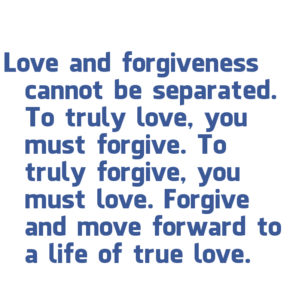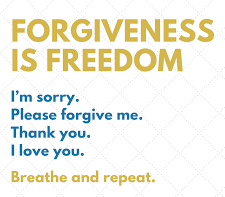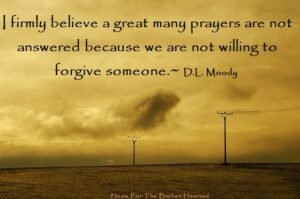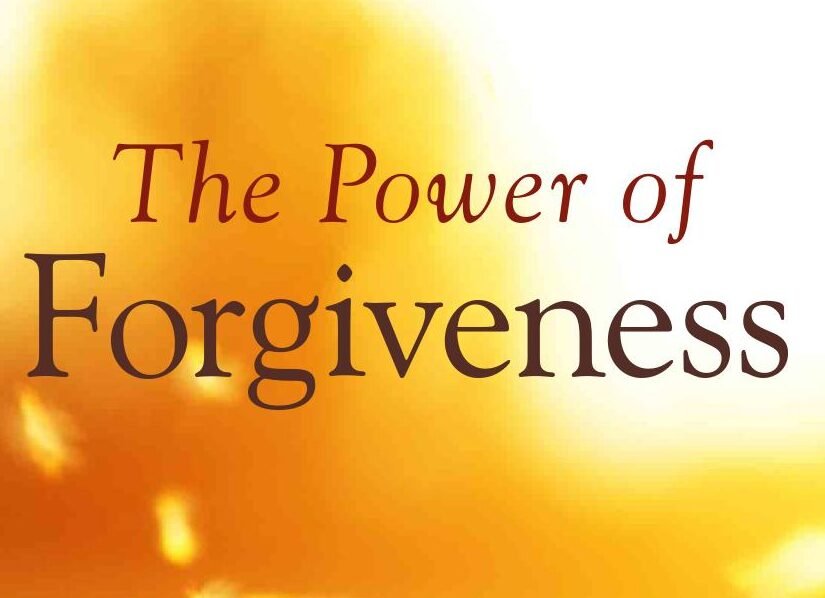7 Internal Powers: Part 4/7- THE POWER OF FORGIVENESS | THE POWER OF FORGET THE PAST & WELL COM THE BEST.
7 Internal Powers: Part 4/7- THE POWER OF FORGIVENESS | THE POWER OF FORGET THE PAST & WELL COM THE BEST.

The Supernatural Power of Forgiveness
- To be frank, it’s challenging to think about forgiving people who have hurt us, especially if the offense happened years ago.
- We don’t want to let go of the painful memories of abuse, put-downs, broken promises, harsh words, family, or work offenses. Many think about forgiveness, but find it painful to talk about forgiveness.
Why, because talking about forgiveness means to recall.
- Consequently, we reason with the idea of not reliving it‖ or not bringing up the past‖.
- This is a mistake.
- As a pastor, I have found that many Christians sit on offenses for many years.
- Unfortunately, they merely think of forgiveness as teaching, instead of a doctrine for higher living standards.
- The doctrine of forgiveness, taught by Jesus Christ, brings power, authority, and value to the one who can forgive.

WHY IS FORGIVENESS HARD?
Forgiveness is hard, but why? Perhaps for the following reasons:
1. WE TRY TO MANAGE OUR ANGER AND ARE OFTEN RELUCTANT TO LET GO OF OUR RESENTMENT:
- The Bible declares: “Be ye angry, and sin not: let not the sun go down upon your wrath: Neither give place to the devil. (Eph 4: 26-27)”
- So, anger is a part of the human anatomy.
- However, the Bible encourages us not to let anger control us.
- There are many reasons why we get angry, but our ultimate motive is to achieve or regain control.
- In other words, if we still feel harmed in the right now‖; even years after the actual offense (event), we frequently continue to feel angry and out of control.
- The Good News is that Jesus came to heal our past and deliver us from such offenses.
How?
- By giving us his Holy Spirit to assist us in an inherently difficult task to forgive someone with whom we’re still angry due to the injustice committed against us.


2. WE WANT TO SATISFY OUR SENSE OF JUSTICE:
- Even if we’re not angry, if we believe our offender doesn’t deserve our forgiveness, we may find ourselves withholding it to avoid appearing to condone what they did to us.

3. FORGIVENESS MAY FEEL LIKE LETTING OUR OFFENDER OFF THE HOOK WITHOUT PUNISHMENT:
- Even if we don’t feel that forgiveness implies we condone the injustice committed against us, to release our anger and forgive our offender may feel like letting them get away without being punished, especially if no other punishment is forthcoming.

4. WE WISH TO HARM AS WE’VE BEEN HARMED:
- An eye for an eye often feels satisfying because anger must be discharged in a way that feels satisfying.
- If we lack the power to deliver actual harm, harboring anger may feel like a second-best option.
- Holding a grudge does in a certain sense feel good.

5. THEY HAVEN’T APOLOGIZED:
- The power of an apology to open the path to forgiveness cannot be overestimated.
- Nor can the refusal to acknowledge a wrong was committed and withholding an apology.
- When someone commits an injustice, we often cease to see or believe they could be capable of any good.
- We tend to label those who harm us, diminishing them from full-fledged human beings into merely “our offenders.”
- This enables us to refuse to leave any room for the possibility that they may have positive characteristics or have the capability to change.

WHAT DOES IT MEAN TO FORGIVE?
- To summarize quickly, forgiveness involves recognizing that the person who harmed us is more than just the person who harmed us.
- He or she is in fact, whether we want to acknowledge it or not, a full-fledged human being whose full dimension isn’t defined by their foolish decision to harm us in some way.
- One must recognize that the real perpetrator is SIN.
- So, at its core, forgiveness is an acknowledgment that a person who’s harmed us still has the capacity for good through the grace of God.
- Forgiveness requires us to view our offenders not as wicked but as confused so much so that they would actually believe that by harming us they could somehow become happier.

Now, here’s where our own will comes in forgiving simply requires us to let go:
- 1. of our anger;
- 2. of our desire to punish or teach a lesson;
- 3. of our need to harm our harmer;
- 4. of the notion that by choosing to forgive an offense we’re in some way condoning an unjust action committed against us or committing an injustice ourselves;
- 5. of the need for an apology; and of the need for our harmer to change.

The truth is by forgiving another their transgression against us, we’re ultimately seeking to free ourselves.
- Forgiving, as the saying goes, doesn’t mean forgetting it means releasing!
- It means we move on; healed from the hurt that’s been done to us.
- This can only happen when we allow the Holy Spirit to assist us in our effort to forgive.

HOW DO FORGIVING OTHERS BENEFIT US?
1. Forgiving others is the only way to break a cycle of violence (whether physical or emotional).
- As complex as it may be, consider the core reason why the Israeli/Palestinian conflict continues to this day.
2. To forgive, we must manifest a life condition of compassion.
- The Bible declares this condition as the abundant life‖.
- The abundant life doctrine embraces the teaching of the resurrection of Jesus Christ from the dead.
- At the expense of the death of His Son, our God has granted us the highest form of living.
- Refuse to allow an offense to rob you of a life of peace with Christ.
- Unforgiveness blocks the flow of a life-condition of peace.
3. To forgive we must let go of our anger.
- If we continue to hold onto anger, it often leaks out against others who’ve committed no crime against us.
- It is also responsible for sabotaging all our experiences; often ruining our ability to feel joy in many areas of life.
FINDING THE COMPASSION TO FORGIVE
- To muster compassion for those who harmed us, we must first believe with our faith that all people truly desire to be happy.
- Then, we must find a way to realize our offender has simply gone completely awry in the pursuit of their own happiness.
- Through compassion you will find yourself pitying them, realizing that they were misguided somewhere in their own life.
- For no matter how sophisticated a person may seem, how confident and wise and successful, how could an intent to harm arise from anything other than a delusion?
The question will naturally arise:
- are some people’s crimes so heinous that they don’t merit forgiveness?
- Parents who’ve abused us?
- Children who’ve rebelled against us?
- Spouses who’ve abandoned us?
- Friends who’ve betrayed us?
- Strangers who harmed us or our loved ones?
- Or even tyrants who’ve killed our families?
- Can one forgive a person without forgiving their actions?
The action is the offense, the person is the instrument, sin is the perpetrator, and the kingdom of darkness is the influencer.
Allow me to bring your attention to the scriptures:
“I am Jesus now I send thee To open their eyes, and to turn them from darkness to light, and from the power of Satan unto God, that they may receive forgiveness of sins, and inheritance among them which are sanctified by faith that is in me. (Acts 26: 15-18)”
In the book of Matthews Jesus made a stunning statement: “For if ye forgive men their trespasses, your heavenly Father will also forgive you: But if ye forgive not men their trespasses, neither will your Father forgive your trespasses. (Mt 6: 14-15)”
So, if you find yourself holding onto a grudge against someone who’s grievously harmed you, or you feel that you can’t find a way to forgive them consider this bible verse: “God decided in advance to adopt us into his own family by bringing us to himself through Jesus Christ.
This is what he wanted to do, and it gave him great pleasure.
So we praise God for the glorious grace he has poured out on us who belong to his dear Son. He is so rich in kindness and grace that he purchased our freedom with the blood of his Son and forgave our sins. He has showered his kindness on us, along with all wisdom and understanding. (Eph. 1: 5-8 NLT)”
The supernatural power of forgiveness opens new experiences and emotions for you to become the kind of person God has called you to become.
It will not only benefit you but ultimately may have the power to transform the lives of the person you’re forgiving. Not always of course, because they have their own will. But if it does, in forgiving them you’re not only setting yourself free, you’re actually contributing to something of greater importance, something the world is literally crying out for peace.
Steve Palmer, Pastor
Email: Outreach-office@charter.net
Website: www.upcchurchonthemove.com
https://images.app.goo.gl/BA3XDeRbJy5SGUuu9






